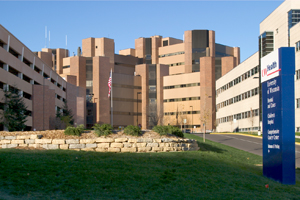The following is an opinion piece from:
Damond Boatwright, Wisconsin Regional President, SSM Health
Sue Erickson, President and CEO, UnityPoint Health – Meriter
Alan Kaplan, MD, CEO, UW Health
This isn’t the first time you’ll hear us say this, it also won’t be the last:
Racism is a public health crisis.
Our health care organizations are taking meaningful action to create change in our community. Just this week we shared that SSM Health and UW Health have recently adopted policies that clearly and unequivocally outline that our organizations will not tolerate discriminatory behavior against our physicians, providers and staff and will not honor patient requests for alternate caregivers that are rooted in bigotry and that UnityPoint Health – Meriter is in the process of adopting a similar policy.
While these policies will ensure that the exceptional providers and staff who provide care to our community are afforded the dignity and respect they deserve, we are also committed to doing more.
We fundamentally believe that no one should lack access to basic needs like food, housing, and essential health care. These and other social factors play a significant role in the overall health of our patients and communities. While our organizations have been working to address these and other related issues for years, progress is slow, and we continue to see inequities persist.
You likely know of the extreme racial disparities in Wisconsin. Disparities exist across a broad range of indicators, including the following:
- Whites in Wisconsin are more than twice as likely as Blacks to hold a college degree. This educational disparity by race is the worst in the nation.
- Black Wisconsinites are more than 11 times more likely to be incarcerated than their white neighbors. This disparity in incarceration is second worst in the nation.
- Our state’s racial disparity in employment of prime age workers is the worst in the nation, with 24 percent more white people employed than Black people of the same age.
- Black babies born in Wisconsin die before age 1 at a higher rate than in any other state. The rate of infant deaths for Black babies in Wisconsin is nearly three times higher than white babies.
These are not merely statistics. Each baby dying is a loss for a parent and a family. Each person incarcerated leaves behind a partner, a child, and a contribution to the community. Within each outcome, there are thousands of lives and thousands of stories. There are stories of triumph, where people rise above and overcome. But inequities persist and continue to impact our neighbors, our families, and the lives of people across our community.
We must do better. Systemic racism and the resulting inequities pose a real threat to the health of our patients, families and our community. As health care leaders, we know our organizations are deeply woven into the fabric of the communities we serve, live and where we work. It is why we are committed to doing meaningful work addressing racism within our organizations and community at large. We want you to know we stand united as frontline organizations against racism, injustice, and all forms of discrimination.
This week’s announcement was just one of the many ways our organizations are working to make meaningful change. As we continue our journey towards equity, diversity, and inclusion we will share the steps we are taking both jointly as community partners, as well as independently within our own organizations.
We cannot do this work alone. We will continue to reach out and join in the incredible work many community groups continue to do. We are proud of the culture we are collectively creating here in Madison. Through our shared values of diversity, equity and inclusion we will build a stronger community, together.




























